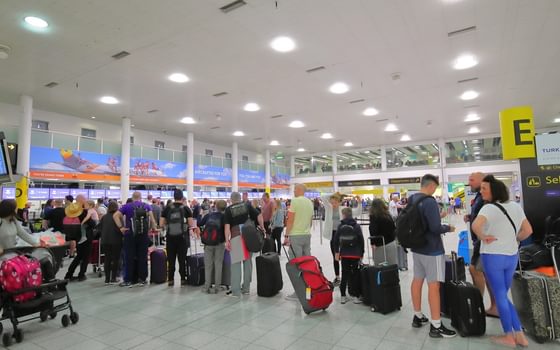Turning back to the sea
A Blue New Deal to revitalise coastal communities
17 November 2016
Once the source of prosperity for many coastal communities, the UK’s seas are now sometimes perceived as a barrier to their economic progress. Our coastal communities are often the most disadvantaged and distant from public decision-making, with many people feeling left behind.
Somewhere, Britain lost something very important: our belief in the sea as a source of prosperity. It is our task to get it back. Turning back to the sea means getting more people excited about what our coast has to offer and growing a new generation of innovative coastal and marine businesses. The Blue New Deal is a plan to put people in control so they can shape local priorities, value their greatest asset, and revitalise the UK coast.
Fishing communities continue to lose jobs and revenue, as fishing rights accumulate in the hands of a few unaccountable companies. Many coastal areas find it hard to retain young people and recruit teachers, as they lack the appropriate physical and digital connectivity. Without the necessary support, communities and businesses are struggling to make the most of the coast’s abundant potential for cleaner energy. And without the appropriate resources, local authorities are discouraged from innovating in more sustainable ways to protect homes and businesses from climate change.
“But people on the coast are eager to take control. They want to be in the driving seat, leading a new approach to regenerating their areas.”
And already the coast is dotted with great ideas and projects – from sustainable shellfish farming projects in Wales and the south west of England, to a world-leading hub for marine renewable energy in Orkney.
Our challenge now is to build on those ideas and help them grow to become opportunities for fundamental, wide-scale change.
A Blue New Deal for coastal communities has to begin by asking how communities can be supported to make the most of their unique assets, now and for future generations.
In practice, that means asking:
- How can we empower coastal communities to become centres for a renewable energy revolution?
- How can we support coastal destinations in attracting visitors year round?
- How can we ensure small fishing boats become and remain economically viable?
- How can coastal communities tackle the impact of second-home ownership on the local housing market, or benefit from inward investment without leaving local people priced out of their communities?
And having asked the questions – speaking with and learning from hundreds of people up and down the country – we can now offer real answers that will help people on the coast take control of what affects their lives, today and in the future.
Some of what needs to happen would broadly apply anywhere, and benefit any community in the country – like developing new sources of finance for local businesses. Others are unique to the specific challenges and assets that coastal communities have – like adapting to coastal erosion or innovative marine leisure businesses.
A healthier coastal and marine environment plays a key role in delivering many of the things that coastal communities need and want.
There are four things that need to happen to revitalise the UK coast, and they must work together to deliver its potential.
-
- Local people need to be in control, leading a new approach to regeneration.
- Coastal communities need to work together to explore how different areas of the coastal economy – including tourism, energy, fisheries, and aquaculture – can help inspire and support each other, to turn again to the sea for jobs and economic prosperity
- More needs to be done to support coastal areas to plan for a changing coast. Proactive and innovative approaches are needed to help make the UK coast more resilient to climate change.
- Government must build the capabilities of places, people, and communities; support projects, small or large; and ensure there is the digital and transport infrastructure that communities need to thrive.
There has never been a more urgent need for communities to come together and lead the change themselves. The Brexit vote was a wake-up call: communities left behind by our economy and ignored by our politics are demanding to be heard. In the face of inequality, political and financial instability, and increasingly urgent threats to the natural environment we depend on, we all want to see a new economy that benefits areas of the country whose potential is not being fulfilled.
“The action plan that follows is just the beginning. Making it all happen will require working at different levels: communities, national and devolved governments, and business and investors.”
For investors, there is huge potential for supporting the new businesses and innovative projects that are needed.
For governments, the Blue New Deal offers the building blocks for a coastal industrial strategy, which could play a key role in helping to rebalance our economy and begin to close the gaps between the UK’s marginalised and well-off regions and communities.
The New Economics Foundation will continue to work with coastal communities from all regions of the UK, to help them reinvent and take control of their local economies, and to speak with a louder voice in government and parliament.
20 priorities to revitalise coastal communities
Healthier and more productive seas can be an engine for more and better jobs into the future.
Focusing on these 20 priorities, through innovation and greater investment in building expertise and capacity in our coastal communities, has the potential to support around 160,000 additional jobs and add about £7.2 billion to the coastal economy. [footnote]This would be brought about by increasing renewable energy, aquaculture and tourism revenue in coastal Local Authorities; while investing in energy efficiency, ensuring sustainable fisheries, and reducing coastal erosion and flood risks resulting from climate change.[/footnote]
Put local people in control
- Communities want the power to define what economic success looks like for their areas. Community-led plans should be taken far more seriously within the wider decision-making system. The economic progress they work towards should be defined by locally felt economic benefits, rather than simply by contribution to the area’s gross value added (GVA) or short-term financial returns.
- People need the capability and opportunities to play active roles in influencing their local place and economy. This includes offering local training in technical and financial skills to build local expertise; providing forums and events for people to meet and interact; and rekindling people’s connection with their local natural environment.
- People and communities want greater control over the public goods and services they rely on, such as housing, energy, land, and transport. Inward investment needs to add value to a place without pricing local people out. Innovative models of common ownership can help harness assets like land and energy for the good of the community.
Plan for coastal change
- Coastal areas have unique planning challenges and they need confidence to plan robustly and innovate for the future. A regional planning tier should be re-established to integrate land, coastal, and marine planning, and make it easier for different areas, authorities, and economic sectors to work together.
- Coastal communities need support to face the difficult decisions imposed by a rapidly changing climate and coastline, including relocation. Innovative approaches to adapting to coastal change need to be seen as an equally important measure as just defending the coast, and should be reflected as such in planning policies.
- Experimentation is crucial to help build the evidence needed to prioritise alternative solutions to managing our coast. Government should support coastal areas in funding innovative approaches in their locality.
Invest in a coastal transformation
- Government should treat the coast as a unique case in its national approach to both industrial strategy and infrastructure development. There should be a coastal industrial strategy and targeted public investment to build the capabilities of places, people, and communities on the coast.
- Local projects need better access to finance than the big banks are able or willing to provide. Government should encourage a more diverse network of local and regional banks to channel investment into sound local businesses.
Tourism
- Visitors – from home and abroad – need to be inspired by how much the UK coast has to offer and to find it easy and affordable to visit. A UK coastal tourism push is needed; transport connectivity and affordability must be a high priority.
- Accessible, wildlife-rich seafronts, and a healthy marine environment, are assets to tourism and vital for communities to take pride in what their local areas have to offer. Post-Brexit, the government should retain and strengthen the EU’s Bathing Water Directive to have the continent’s cleanest coastline and beaches.
- Strong local supply chains retain more value locally – it shouldn’t just be a few shops that benefit from visitors to a place. Communities, industry, training centres, and government need to play their part in supporting small and medium enterprises (SMEs) and businesses that create positive local economic, social, and environmental impact.
Energy
- The UK should lead the world in offshore and marine renewable energy. Businesses, local authorities, innovators, and communities need a clear commitment from government to long-term innovation funding and to rapidly phase out support and rhetorical backing for fossil fuels.
- Communities and towns should be empowered to become centres for community-led renewable energy – both community owned energy and other projects with genuine local benefit. As part of this, the right conditions and proper access to finance are essential.
- The UK needs an ambitious programme to insulate homes and buildings, reduce energy bills, and cut carbon emissions. Energy efficiency must be a UK national infrastructure priority.
Fisheries
- Fishers need healthy fish stocks– today and for years to come. National policy must follow scientific advice to set fishing limits sustainably and preserve future fishing opportunities.
- Smaller boats are the lifeblood of thriving ports – those that are fishing sustainably need to get a larger share of fishing opportunities. The UK currently gives only 1.5% of the national fishing quota to the smallest category of boats, even though they make up over 75% of vessels.
- Fisheries management and governance need to better support fishing communities. The UK needs a small-scale producer organisation (PO), which can give smaller boats a voice and greater control to help rebalance power in the fishing industry.
Aquaculture
- Aquaculture innovators need the government’s support and commitment to pioneer new sustainable aquaculture businesses, including funding to support innovation focused on raising environmental standards.
- Businesses should come together and collaborate with local authorities to set up local or regional ‘seafood hubs’ that provide support, training and marketing opportunities to aquaculture producers and fishers, and better connect them with the local economy and communities.
- Clean water is essential for fish and shellfish health, and therefore crucial to the success of aquaculture businesses. As part of a wider effort to have the continent’s cleanest coastline and beaches, regulators must ensure the UK meets current EU water quality targets, and increase, or at least keep the same, targets post-Brexit.
Campaigns Blue New Deal
Topics Brexit Climate change Energy Environment Fisheries & farming







